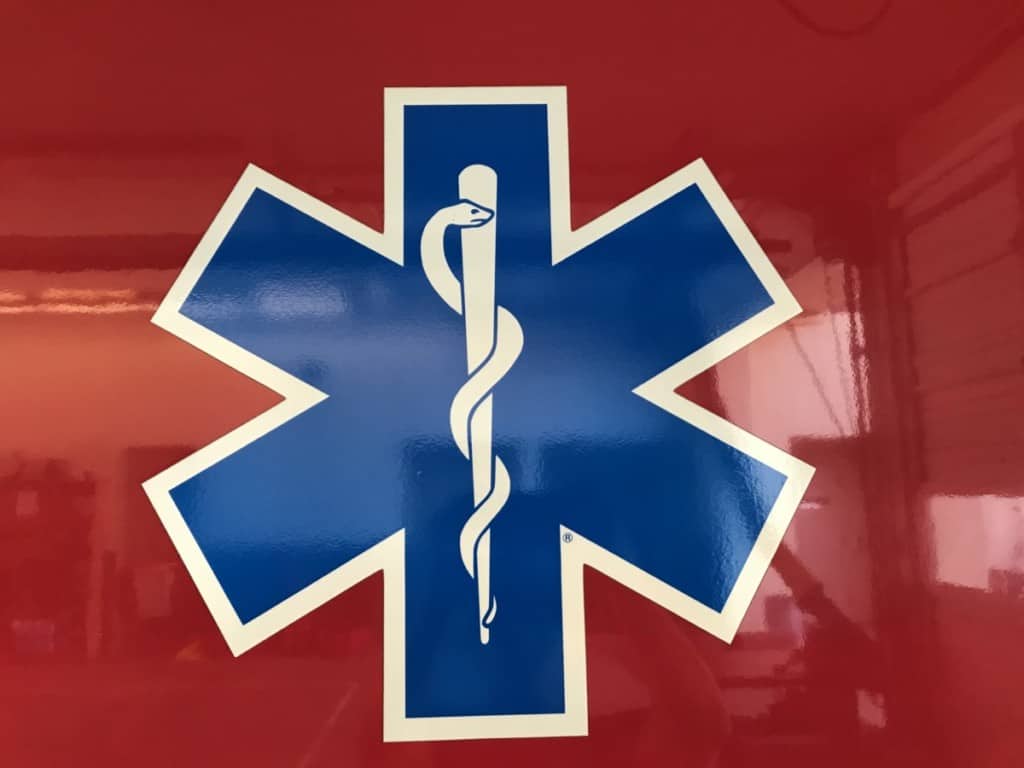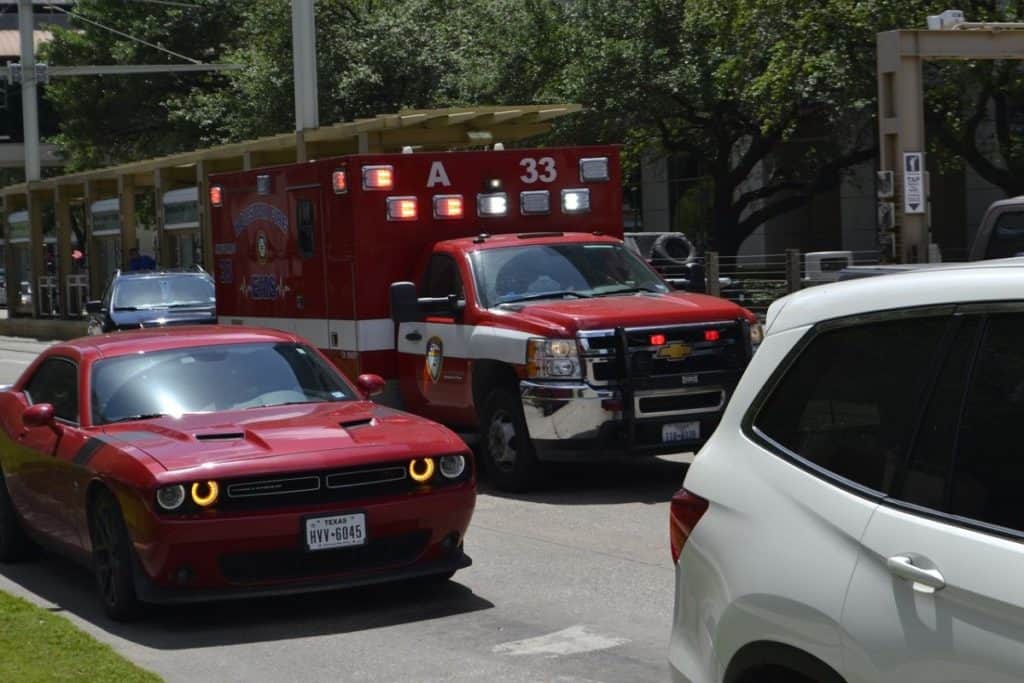Thinking about becoming a paramedic or an EMT and wondering whether there will be drug tests? This isn’t a straightforward question, as it can really depend on a few different things. Here’s what you need to know.
EMTs and Paramedics may be drug tested, but when and how often can vary. Almost all training programs will require a drug test prior to starting. You will also, most likely, be tested when you are hired as an EMT or Paramedic.
To understand the drug testing policies and procedures for EMTs and Paramedics, we will take a look at when you may be tested, how often, and why they feel the need to test you in the first place. Take a look.
Your # 1 priority is keeping your family safe. As a firefighter, I recommend everyone has updated smoke detectors that don’t require battery changes, like these ones from Kidde, a fire extinguisher, like this one from Amerex, and a fire escape ladder if you have bedrooms above the first floor, I recommend this one from Hausse.
Also read: Do Firefighters Get Drug Tested? How and When
Drug Test For EMT Certification

The vast majority of colleges and institutions will require students for EMT courses to pass a drug test. They will also expect an additional test prior to certifying as an EMT.
The logic behind this is simple, illegal drugs are not performance-enhancing as they might be in athletics. They make it difficult for you to function completely in a cognitive approach to your work.
When dealing with matters of life and death, there is simply no reason that illegal drug use should be acceptable.
This is good practice for your life as an employee as many private, state, and federal employers will expect you to be tested for the use of drugs too, and failing such a drug test can lead to the loss of your job and even, potentially, criminal or civil charges.
If you’d like to see a specific policy regarding this in EMT environments, you can check out this one from College of the Canyons.
Also read: How to Become an EMT: Expert Guide
Do Paramedics Get Drug Tested?
Yes. In fact, paramedics and EMTs are both normally subject to drug tests as part of their work.
All EMS facilities and fire stations that are funded, in any manner, by the use of a federal grant are required to be drug-free workplaces.
In addition, the management team of any individual place of work is entitled to implement zero-tolerance drug policies, irrespective of legislation.
Also read: Can You Be a Firefighter with Past Drug Use?
Are There Are Any Guaranteed Moments Where You Will Be Drug Tested?
Yes, there is one situation in which an EMT or a paramedic is almost guaranteed to get drug tested and that’s if you have any kind of accident during the course of your duties.
At this point, it won’t just be your employer that wants to know what’s in your bloodstream, but insurance companies are going to want answers too.
If you fail a drug test in these circumstances, you may be in very serious trouble, indeed. Depending on the nature of the accident you might be charged with criminal charges and it is highly likely that your employer or their insurer would file a civil suit against you to recover the costs of the damage that you had caused.
How Often Do Paramedics/EMTs Get Drug Tested?

There is no set pattern for drug testing, and it is very much down to the individual employer.
In some workplaces, you may find that they implement tests nearly every single month. In others, you might find yourself going for years between tests unless, of course, you have an accident.
Almost all employers will expect you to take a drug test when you arrive at work for the first time and many will expect you to take a test during the recruitment process too.
While you are free to refuse a test during the recruitment process – it is highly unlikely that you would then be made an offer of employment.
Some Basic Principles Of Drug Tests For EMTs And Paramedics
- Drug testing is perfectly legal. In fact, even the President of the United States is subject to mandatory drug testing. The Supreme Court says that while this does infringe your right to privacy, it’s necessary to protect other people and thus it remains legal. State laws mirror federal laws on this. Private employers can usually justify testing on the grounds of safety too.
- Marijuana may be legal, using it on the job may get you fired. There is no requirement for employers to omit marijuana from drug tests even in states where it is legal. There are currently 11 states in which as long as your marijuana usage is legal, you cannot be fired for it, however. There are 7 more that specifically offer no protection, though one of these (California) has legislation coming that may make it illegal to discriminate against legal marijuana usage in the state. Then the other states either have no protections at all based on the law of those states or have unclear levels of protection for marijuana users.
- Prescription medication should not get you fired – as long as it is being used within the correct parameters and it is not interfering with your ability to do your job (if this relates to a disability – reasonable accommodation must be made for this too).
- Random drug testing is not always OK. In general, an employer must show “reasonable suspicion” that you are using drugs before they test you. However, this is a vague definition and it seems clear that most reasons that an employer might use for requiring a test would satisfy this definition.
- Membership in a rehab program does not exempt you from drug tests. In fact, it would be a responsible employer that continues to test in these circumstances to ensure that you are, in fact, complying with the program.
- Drug tests usually involve taking a urine sample though blood, breath, saliva, hair, etc. may be used as well. You should be aware that if a hair sample is taken, it will show a record of most drug consumption since the individual hair started growing. This is, usually, a much longer period than blood or urine will show positive results for.
- You cannot be forced to urinate in front of another person for a urine sample – but it is OK for employers to use less-invasive monitoring techniques to try and prevent you from tampering with a sample. This can include listening in, changing the color of the water in the toilet, asking you to wear a gown while giving a sample and running a temperature check on any urine provided.
- What are the consequences of failing a test? Well, if you work in a federal job, you will be required to take part in an Employee Assistance Program (EAP) and if you fail to comply with the program’s rules in full – you will lose your job. In state and private jobs, the failure to pass a drug test may result in anything from a warning to instant dismissal. There is no requirement for private employers to offer you any kind of second chance if you fail a drug test.
- You may refuse to take a drug test at any time. However, employers are entitled to either refuse employment or to dismiss you for refusing to take a test. You may also lose your right to unemployment following the dismissal.
- Many states also deny unemployment if you fail a drug test – though some will reinstate the benefit after a certain period of time elapses.
- There is no “safe time” for drugs to pass through your system. Everyone is different and trying to cheat the system will, eventually, lead to you getting caught.
- You may be able to challenge the results of a failed drug test – either with union support (if you are a member) or by engaging an attorney to do so.
Conclusion
Do paramedics/EMTs get drug tested? How often? Yes, they certainly do get tested. All paramedics and EMTs are likely to find themselves tested prior to joining college and again, before certification. Then it is very much down to employers as to how often they test.
You are allowed to refuse to take a drug test but if you do refuse to do so, you should not be surprised to learn that this is grounds for your dismissal. The kinds of drugs that appear on drug test results can all impair your performance in potentially life-saving work, there’s really no excuse for illegal drug consumption when you work in these fields.
Related Articles:
What Is The Age Limit To Be A Paramedic/EMT?
Can You Live Off an EMT/Paramedic Salary?

